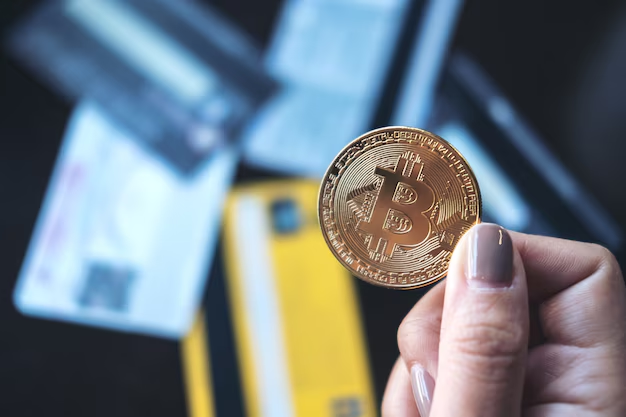How Long Does It Take to Send Bitcoin? Understanding the Journey of a Bitcoin Transaction 🚀
Bitcoin, the pioneering cryptocurrency, has revolutionized the way we think about money, transactions, and digital assets. One question that frequently emerges for those new to Bitcoin or even for seasoned users is: How long does it take to send Bitcoin? The time it takes for a Bitcoin transaction to be completed can vary, depending on a variety of factors. In this article, we dive into the intricacies of Bitcoin transactions, explore what affects their speed, and provide practical insights to make your Bitcoin experience smoother and more efficient.
The Basics of Bitcoin Transactions
When you send Bitcoin, the transaction doesn't occur instantaneously. It's a process that involves several steps and mechanisms ensuring security and verification. Let's break down these steps:
The Transaction Mechanism
Creation and Broadcasting: Once you initiate a Bitcoin transaction, it is created and then broadcasted to the Bitcoin network. This step involves your transaction being sent to a pool of unconfirmed transactions, known as the mempool.
Verification and Mining: Miners, the backbone of the network, pick transactions from the mempool to include them in the next block. A key aspect of this process is the block size limit, which restricts the number of transactions per block.
Block Confirmation: For a transaction to be fully confirmed, it needs to be included in a block that is added to the blockchain. Each new block builds upon the previous one, further securing the transaction's integrity.
Confirmation Time Explained
- Average Time: Typically, a Bitcoin block is mined approximately every 10 minutes, meaning the average transaction will be confirmed in this time if it is picked immediately.
- Multiple Confirmations: To ensure robustness, most exchanges and wallets require multiple confirmations before a transaction is considered irreversible. Six confirmations are often cited as a standard for high-value transactions.
Factors Influencing Bitcoin Transaction Speed
While the average block time is 10 minutes, real-world transactions can take anywhere from a few minutes to several hours. Here's why:
Transaction Fees 🏷️
- Priority through Fees: Why do some Bitcoin transactions go through quicker than others? The answer often lies in transaction fees. By paying higher fees, you incentivize miners to prioritize your transaction over others. Conversely, lower fees can result in delays, especially during network congestion.
Network Activity 🌐
- Impact of Traffic: Like a highway at rush hour, the Bitcoin network can become congested. High volumes of transactions can slow down processing times, as miners can only process a limited number of transactions per block.
Complexity of Transactions 🔄
- Simple vs. Complex: Transactions containing multiple inputs or outputs, or those from multi-sig wallets, can take longer to verify due to their complexity.
Bitcoin Alternatives: Speeding Up Your Transactions
For those who need faster transaction confirmations, consider these alternatives:
Use the Lightning Network ⚡
What Is It?: The Lightning Network is a second-layer solution on top of the Bitcoin blockchain. It enables faster, cheaper transactions by creating off-chain transaction channels.
Benefits: Transacting on the Lightning Network can be nearly instantaneous, making it ideal for smaller payments or when speed is of the essence.
Transaction Accelerators 🚀
Third-Party Services: Some services offer to expedite transaction confirmations for a fee. They typically work by submitting your transaction to additional miners directly.
Utility: These can be particularly useful if your transaction has been pending for an extended period.
How to Optimize Your Bitcoin Sending Experience
Now that we've covered the basics and alternatives, let's discuss some practical steps you can take to enhance your Bitcoin transactions:
1. Choose the Right Wallet 🎒
- Fee Control: Opt for a wallet that lets you customize fees. This flexibility ensures you can prioritize urgency as needed and adjust according to network conditions.
2. Monitor Network Conditions 📊
- Fee Estimators: Utilize tools that estimate optimal fees based on current network activity. Many wallets incorporate this feature, ensuring you are informed when deciding on a suitable fee.
3. Plan Your Transactions 🗓️
- Timing Is Everything: If your transaction isn't urgent, consider waiting to send it during off-peak times when network congestion is lower and fees are reduced.
4. Double-Check Transaction Details ✔️
- Avoid Errors: Ensure accuracy by double-checking recipient addresses and the amount before sending. Mistakes can result in delays or irreversible loss.
Key Takeaways and Tips 🎯
To sum up the essentials of sending Bitcoin efficiently, here’s a handy checklist:
- 💸 Set the Appropriate Fees: A higher fee can expedite the process, making it prudent for time-sensitive situations.
- 🔍 Monitor Network Activity: Engage with the network when activity is low, typically resulting in quicker and cheaper transactions.
- ⚡ Explore Lightning Network for Speed: For instant confirmations, especially for smaller sums, consider using the Lightning Network.
- 🛠️ Use Tools and Services Wisely: Employ transaction accelerators if your transaction is stuck and adjust fees using fee estimators.
- ⏳ Be Patient with Confirmation Times: Remember that multiple confirmations bolster security — plan accordingly, particularly for high-value transactions.
Ultimately, understanding how Bitcoin transactions work, taking note of network dynamics, and making informed choices regarding fees and technology can greatly enhance your Bitcoin experience, ensuring that your digital money moves as swiftly and securely as possible. With these insights, you can navigate the vibrant world of Bitcoin with confidence, optimizing the balance between cost and speed. Whether you are a seasoned crypto enthusiast or a newcomer, grasping these concepts can empower you to make your Bitcoin journey both smooth and efficient.

